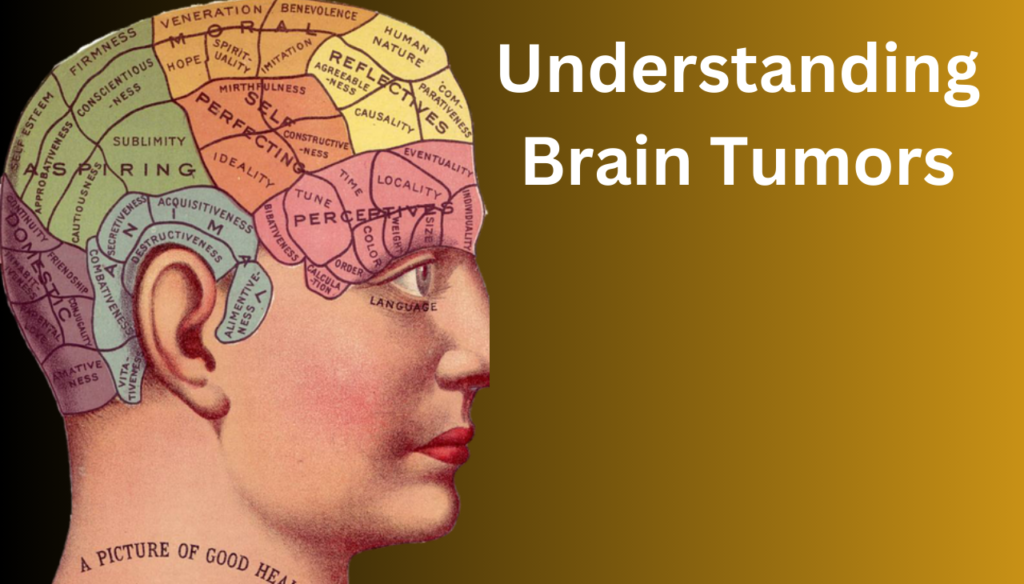A brain tumor is a cluster of abnormal cells in the brain, potentially life-threatening regardless of whether they are cancerous (malignant) or noncancerous (benign). The skull’s rigid structure means that any growth within it can lead to increased pressure, resulting in brain damage or life-threatening complications.

Benign vs. Malignant
Benign tumors grow slowly, with well-defined borders, making surgical removal easier and less likely to recur. Conversely, malignant tumors grow rapidly, invade surrounding tissues, and can spread to other parts of the brain or central nervous system.
Types of Brain Tumors
Primary Brain Tumors
These originate within the brain and can develop from various cells, including brain cells, membranes surrounding the brain (meninges), nerve cells, and glands such as the pituitary or pineal glands. Gliomas and meningiomas are common types of primary brain tumors in adults.
Secondary Brain Tumors
Also known as metastatic tumors, these originate elsewhere in the body and spread to the brain. Lung, breast, kidney, and skin cancers are common sources of secondary brain tumors.
Risk Factors
- Family History: While rare, certain brain tumors can be genetically inherited. Consult a doctor if multiple family members have had brain tumors.
- Age: The risk of brain tumors generally increases with age.
- Chemical Exposure: Exposure to certain chemicals in the workplace may increase the risk.
- Exposure to Radiation: Ionizing radiation exposure, such as from cancer therapies or nuclear incidents, elevates the risk.
- No History of Chickenpox: A history of childhood chickenpox is associated with a lower risk of developing glioma.
Symptoms
Symptoms vary based on the tumor’s location and size. Direct damage to brain tissue or pressure on surrounding areas can cause noticeable symptoms.
Diagnosis
Diagnosis involves imaging tests like MRI or CT scans, neurological exams, and sometimes biopsy for definitive identification.
Treatment
Depending on the type and stage of the tumor, treatment options include surgery, radiation therapy, chemotherapy, targeted medication therapy, or a combination of these.
Questions to Consult a Physician
Which kind of brain tumor am I experiencing?
- Which treatments are available to me, and what are the drawbacks?
- How will I live my life now that I have this diagnosis?
- Does my ailment have access to any clinical trials?
Outlook
Prognosis varies widely depending on factors like tumor type, size, location, and overall health. Regular follow-up care is essential for monitoring and managing any potential recurrence or complications.
Conclusion
Understanding brain tumors involves recognizing the differences between benign and malignant tumors, knowing the various types, understanding risk factors and symptoms, and being aware of available treatment options. Early detection and prompt treatment play crucial roles in improving outcomes and quality of life for individuals affected by brain tumors. Regular medical check-ups and seeking prompt medical attention for any concerning symptoms are essential for maintaining brain health.



